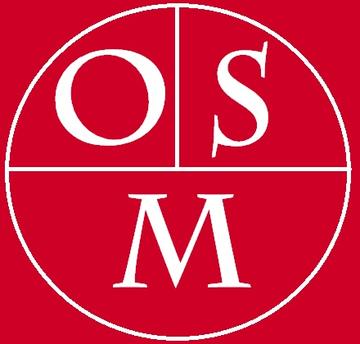Summer Medieval Events
Oxford Medieval Studies Programme

Dear Medievalists,
A few summer events to bring to your attention.
Midsummer Outing to Godstow Abbey
Oxford Medieval Studies will be celebrating the end of term with a Midsummer outing to Godstow Abbey! All are welcome to join on Saturday, 24 June from 4pm and encouraged to take part in summer activities, including singing, sketching and swimming (weather permitting). Take along a picnic too! Please contact Alison Ray with any queries. Directions to Godstow and Port Meadow FAQs can be found on the Oxford City Council website here. A brief history of Godstow Abbey and further details of the medieval site can be viewed here.
- The Society for the Study of Medieval Languages and Literature and the University of Chester are holding a free one-day conference (in-person only) at the Grosvenor Museum on Saturday 1st July 2023, ‘Universal Chronicles in the Middle Ages’. For full details, and to register, please click here.
- The Oxford Festival of the Arts 2023 has several events that might be of interest to medievalists! To book, please click the link for the event you are interested in:
LUXMURALIS: Renaissance: 23 June – 27 June | Entries at: 9.30pm; 10pm; 10.30pm; 11pm every day | University Church of St Mary the Virgin
The story of the Renaissance world through the eyes of the artists and Masters of the time, brought to life in a spectacular fully-curated son-et-lumière experience. We are encouraging visitors to enjoy the late-night hours for a full experience in a building which will be awash with colour and sound, particularly after sundown, so the later the better, really.
Secret Byrd: The Gesualdo Six and Fretwork: Thursday 29 June | Performances at 6pm and 9pm | Abingdon Abbey Buildings
An extraordinary theatrical concert, which celebrates the 400-year legacy of William Byrd, one of England’s finest composers. Award-winning British vocal ensemble Gesualdo Six collaborate with Fretwork for the first time in an immersive performance – where the audience becomes part of the ‘performance’. This is not medieval as such, but it will be re-enacting clandestine recusant Catholics singing sacred polyphony in secret – in a building that actually fell victim to the Dissolution!
Vibrancy of monastic life and sacred polyphony: Thursday 29 June | 7.30pm (in between Secret Byrd performances) | Abingdon Abbey Buildings
Was monasticism really in decline in late medieval England? Was sacred music collateral damage of the Reformation/s; or was it what made it the glorious tradition we know and love today? Join the discussion together with Dr Elizabeth Gemmill and Dr Michelle Castelletti.
GIFTS AND BOOKS: From early myth to the present: Friday 7 July | 1pm | Sir Victor Blank Lecture Theatre, Weston Library
Curator and scholar Dr Nicholas Perkins will introduce some of the exhibition’s most intriguing books and stories, asking how books nurture relationships; how objects and people can be entangled in the bonds of exchange; and how storytelling itself is a powerful form of gift-giving.
People and Plague at Magdalen College: Saturday 8 July | 11am – 4pm | Old Library, Magdalen College
Highlighting people’s stories and histories in relation to a very current topic, the artefacts relate to the people within the Magdalen community; exploring the College’s experience of – and responses to – epidemic diseases, from its founding in 1458 to the present day, including Fellows involved in the development of the Oxford-AstraZeneca vaccine. The display will also include artefacts from the thirteenth century, with the Foundation Charter at the centre of the exhibition.
Going to Church in Medieval Oxford, with Professor Nicholas Orme: Saturday 8 July | 4.30pm | Old Library, Magdalen College
Based on the book which has surprisingly captured the public imagination bringing together the history of the buildings, the people, the worship, and telling the story of how the Church was used, Professor Nicholas Orme will turn the attention to Oxford, setting out who went to church, who did not attend, how people behaved there, and how they—not merely the clergy—affected how worship was staged.
Caravaggio: Tableaux Vivants: Wednesday 12 July | 4.30pm | 6.30pm | 8.30pm | University Church of St Mary the Virgin
Twenty-three of Caravaggio’s best canvases will be recreated by the actors, using only their bodies and a few props, such as draped fabrics and other everyday objects. In accordance with Caravaggio’s distinct compositional style, a single stream of light illuminates the scene, working as an imaginary frame, imbuing each visual composition with raw naturalism, as the painting literally come to life in seamless transition between frame-to-frame, capturing the intense physicality evident in Caravaggio’s work. The result is exquisite and poignant. The eight players have clearly devoted much thought to the emotional life of each character they embody, sustaining the moment with great focus and determination. This is quite mesmeric.
Joan of Arc – Charlatan or miracle-worker?: Thursday 13 July | 7.30pm | The Pavillion, St Hilda’s College
Tonight, Lord Sumption discusses Joan of Arc and the problems for a secular historian dealing with the supposedly miraculous. There will also be the opportunity to ask questions on any subject (and we know his eagerly anticipated final volume of the Hundred Years War – Triumph and Illusion – will be coming out this summer.) The Q&A will be led by Professor Hannah Skoda, Fellow in Medieval History at St John’s College, Oxford.
People’s Stories in the Library and Archives of New College: Saturday, 15 July | 12pm – 6pm | The Conduit Room, New College
View some of the fabulous manuscript, rare book, and archive treasures of New College, Oxford; and learn about the people, stories, and histories which created them – and which they themselves helped to shape.
Library and Archives staff will guide you through the exhibition and answer any questions.


